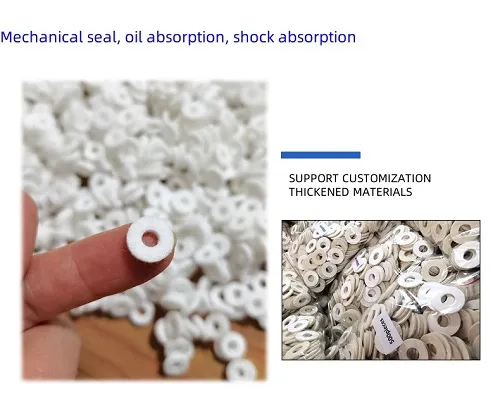Durable Industrial Felt Fabric for Versatile Applications in Manufacturing and Design
Industrial Felt Fabric An Overview of Its Applications and Benefits
Industrial felt fabric is a versatile material that has garnered attention across various industries due to its unique properties and benefits. Made from wool, synthetic fibers, or a combination of both, industrial felt is characterized by its dense and sturdy structure, which allows it to withstand demanding conditions. In this article, we will explore the composition of industrial felt, its manufacturing processes, and its wide-ranging applications across different sectors.
Composition and Manufacturing
Industrial felt is primarily composed of fibrous materials that are entangled together to form a non-woven fabric. The most common raw materials used for industrial felt are wool, polyester, and polypropylene. Wool felt is valued for its natural resilience and ability to absorb moisture, making it an excellent choice for applications requiring thermal insulation. On the other hand, synthetic felts, such as those made of polyester, offer enhanced durability and resistance to chemicals and UV light.
The manufacturing process of industrial felt typically involves several key steps carding, layering, wetting, and pressing. Carding disentangles and aligns the fibers, while layering ensures an even distribution of fibers in the desired thickness. In some cases, the wet felting method is employed, where moisture and heat are applied to aid the felting process. The final step involves pressing the layers together, resulting in a dense, robust fabric that can be cut and shaped according to specific needs.
Applications of Industrial Felt Fabric
Industrial felt fabric has found its way into numerous applications, demonstrating its adaptability and effectiveness. Below are some of the most significant areas where industrial felt is commonly utilized
1. Automotive Industry Industrial felt is extensively used in the automotive sector for insulation and soundproofing. It can be found in car interiors, such as under carpets and behind dashboard panels, to reduce noise and vibration, enhancing passenger comfort.
2. Construction In the construction industry, felt is used for soundproofing and thermal insulation in walls, roofs, and floors. It provides excellent acoustic properties, making it ideal for residential and commercial buildings.
3. Manufacturing Felts are often employed in various manufacturing processes, including as protective pads on equipment and as non-abrasive surfaces for machinery. Their ability to absorb vibrations helps to reduce wear and tear on both equipment and products.
4. Gaming and Crafts In addition to industrial uses, felt is popular in arts and crafts, providing a soft, yet durable material for applications such as game mats, toys, and decorations. Its versatility makes it a favorite among crafters.
industrial felt fabric

5. Health and Safety Industrial felt is also applied in health and safety materials. For instance, it is used in floor mats that provide slip resistance in industrial settings and in padding for workplace safety equipment.
6. Sound Absorption To mitigate acoustic issues in open-plan offices, industrial felt can be used as wall panels and baffles, effectively absorbing sound and improving the overall working environment.
Benefits of Industrial Felt Fabric
The growing popularity of industrial felt can be attributed to its numerous benefits. Some of these include
- Durability Industrial felt is known for its longevity, resisting wear and tear under challenging conditions. This makes it a cost-effective choice for businesses.
- Thermal and Acoustic Insulation The natural property of felt to insulate against heat and sound makes it a preferred material for various applications requiring energy efficiency and comfort.
- Eco-Friendly Options With an increasing focus on sustainability, manufacturers produce felt from recycled materials, reducing environmental impact while still delivering high-quality products.
- Customization Industrial felt can be easily customized in terms of thickness, density, and color, allowing manufacturers to tailor products to specific needs.
Conclusion
Industrial felt fabric is an indispensable material in today’s marketplace, offering a multitude of advantages that make it ideal for various applications. From automotive and construction sectors to arts and crafts, its ability to provide insulation, durability, and customization drives its popularity. As industries continue to seek innovative and sustainable solutions, the significance of industrial felt fabric is likely to grow, unlocking new possibilities for both manufacturers and consumers.
-
Your Go-To Guide For Affordable Wholesale Wool FeltNewsOct.31,2024
-
The Trusted Source For Industrial Felt And Hotel TowelsNewsOct.31,2024
-
Premium Industrial Felt Solutions For Every IndustryNewsOct.31,2024
-
Enhancing Performance With Industrial Felt FabricsNewsOct.31,2024
-
Elevating Performance With High-Quality Industrial Felt MaterialsNewsOct.31,2024
-
Brighten Your Projects With Vibrant Colored FeltNewsOct.31,2024
-
Unleash Your Creativity with Stylish Felt ProductsNewsOct.30,2024







